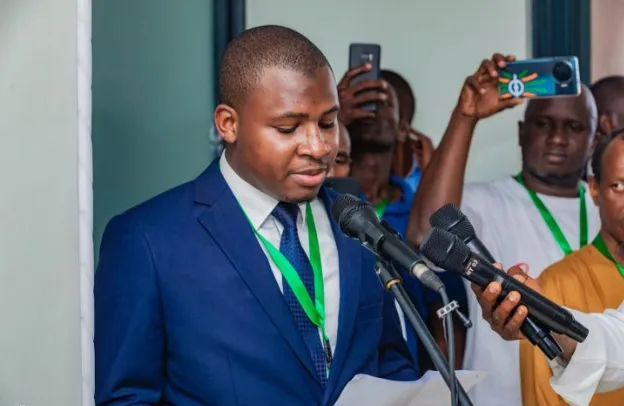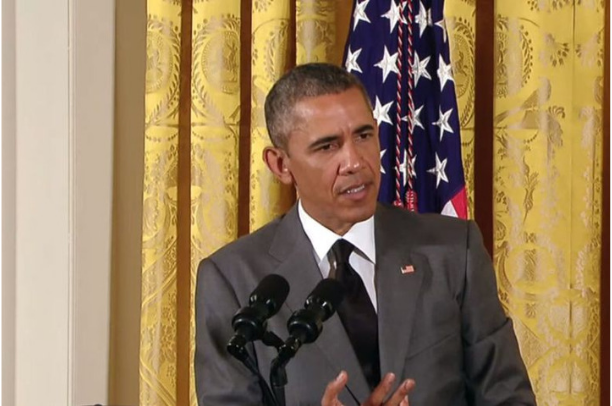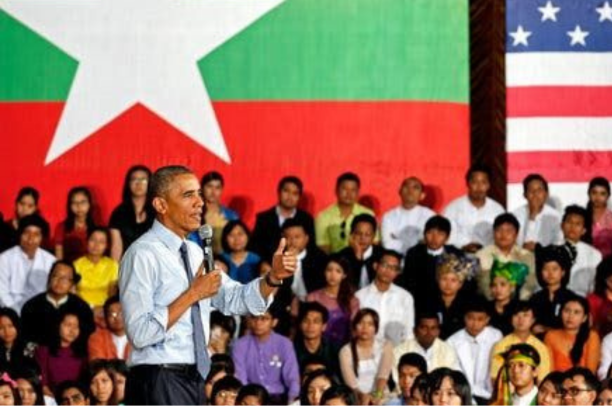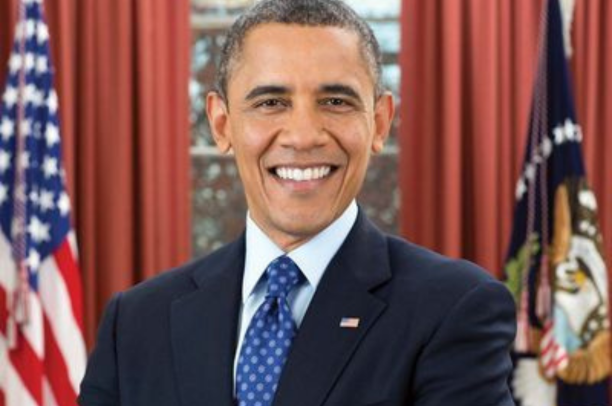The Life & Legacy Of Ahmed Sékou Touré (Former President of Guinea) with Mohamed Bachir Camara

An old African proverb teaches us that if we can see further, it is because we stand on the shoulders of giants. These giants are the ancestors, leaders, and visionaries who paved the way, leaving behind legacies that are both sources of inspiration and complex cautionary tales. In our ongoing quest to connect from roots to relevance, it’s crucial that we study these lives, not to blindly worship or condemn, but to learn, grow, and build our own legacies with greater wisdom.
Learn How to Leverage Your Story through our Story To Asset Framework.
On a recent episode of The Obehi Podcast, I had the honour of sitting down with Mohamed Bachir Camara, a passionate young Guinean leader, to explore the life and legacy of one of Africa’s most formidable and controversial figures: Ahmed Sékou Touré, the first President of Guinea.
See the full episode with Mohamed Bachir Camara
His story is a powerful lesson in conviction, self-mastery, and the immense weight of leadership.
The Spark of Rebellion: Forging a Leader
To understand the president, we must first understand the boy. Born in 1922 in Faranah, Guinea, Ahmed Sékou Touré’s journey was shaped by an early and acute awareness of injustice. Mohamed shared a pivotal story from Touré’s childhood that perfectly illustrates this.
While attending a French colonial school, a young Touré noticed a recurring injustice during break time: the French administrators would not give food to his Guinean friends.
“He realised that this was not fair,” Mohamed explained, “and he tried to protest in order to involve his friends into that process, in order to claim their rights.”
This was not a fleeting moment of youthful defiance; it was the birth of a revolutionary consciousness. His protests led to his expulsion from school, an event that could have ended his intellectual journey. Instead, it ignited it.
Sékou Touré embarked on a rigorous path of self-education, a true testament to the principle of self-mastery. He worked shining shoes, splitting his meagre earnings in two. One part went to buying clothes to look presentable, and the other, crucially, went to buying books.
He immersed himself in the works of communist and socialist thinkers, finding a language for the injustices he felt so deeply.
This early commitment to educating himself, even after being rejected by the formal system, is a profound lesson for every entrepreneur today. Schooling is finite, but education is a lifelong pursuit. To build something of value, you must first build yourself. You must own your story of growth and knowledge.
The Power of the People: From Trade Unionist to President
Sékou Touré’s rise to prominence wasn’t orchestrated in elite political chambers; it was born in the grassroots movements of the people. Before entering politics, he cut his teeth as a leader in trade unions, fighting for fair wages and better working conditions for Guinean workers. He understood a fundamental truth that many leaders forget: real power lies with the people.
See also See also How Storytelling Preserves Culture and Identity in Esanland: Embracing Oral Traditions and Memory Techniques
His ability to connect with the masses was magnetic. As Mohamed vividly recounted, the women of Guinea were his most ardent supporters. They composed songs for him, famously referring to him as “Syli,” meaning “the elephant” in the Susu language, a symbol of his strength and unwavering presence.
“The things that he was fighting for were very, very important and crucial, and people were in need of that,” Mohamed noted. “Nobody had that mindset in order to fight for that.”
This deep connection with his community became the bedrock of his political power. It allowed him, as a young man, to become the most influential figure in the Guinean branch of the African Democratic Rally (RDA), even surpassing his mentor, Félix Houphouët-Boigny of Côte d’Ivoire, in his unyielding demand for immediate independence.
For entrepreneurs, the lesson is clear. Your product or service is secondary to your ability to connect with the needs, pains, and aspirations of your audience. When you genuinely fight for your community, they will, in turn, champion you.
This is the core principle of Obehi Ewanfoh’s “Story to Asset Framework“, which helps entrepreneurs use their authentic stories to build powerful connections and attract their ideal clients.
A “No” That Echoed Across a Continent
The defining moment of Ahmed Sékou Touré’s legacy came in 1958. French President Charles de Gaulle, seeking to maintain influence over France’s African colonies, proposed a new constitution creating a French Community.
He offered the territories a choice: a “Yes” vote for autonomy within the community or a “No” vote for immediate and complete independence, with the clear threat that France would sever all ties and aid.
While other leaders hesitated, Sékou Touré stood firm. He famously declared, “We prefer poverty in liberty to riches in slavery.” Guinea was the only territory to vote “No.”
This act of audacious defiance sent shockwaves across the continent. It was a powerful declaration of African self-determination that inspired a generation of nationalists. France reacted vindictively, immediately withdrawing its administrators, pulling its funding, and even destroying infrastructure on its way out. They left Guinea isolated, hoping it would collapse and serve as a warning to others.
But Touré’s courage demonstrated that the chains of colonialism could be broken not just through negotiation, but through sheer force of will. He turned to the Soviet Union and other allies, forging a new path for his nation based on Pan-Africanist and socialist ideals.
The Contested Legacy: Visionary or Tyrant?
No honest examination of Sékou Touré’s life and legacy can ignore its darker, more painful aspects. His 26-year rule was marked by both significant progress and brutal repression.
On one hand, his government made remarkable strides. He nationalized industries to ensure Guinea’s resources benefited its people, built the country’s main airport and stadium, and made significant investments in education and healthcare.
In a move that was highly progressive for its time, he actively empowered women, appointing them to ministerial positions and ensuring their participation in the nation’s economic development.
On the other hand, the constant threat of foreign-backed coups and internal conspiracies created a climate of intense paranoia. His regime became authoritarian, and thousands of political opponents, both real and perceived, were imprisoned, tortured, or executed. The infamous Camp Boiro became a symbol of this brutality.
Mohamed offered a nuanced perspective, suggesting that Touré was not always in full control and was often betrayed by those closest to him, including his own brothers who carried out atrocities without his knowledge.
“There were so many killings that Sékou Touré was not aware of,” Mohamed stated, highlighting the tragic complexity of his rule. When Touré did become aware, he failed to take decisive action against his kin, a critical leadership failure that stains his legacy.
See also Master Parenting with SMART Goals: Expert Tips from Parenting Coach Helen Hicks
The families of those who suffered under his rule rightly remember him as a dictator. Yet, many in Mohamed’s generation see him as a hero who laid the foundation for national pride and sovereignty. This duality is a stark reminder that leadership is never simple.
A leader is ultimately responsible for the environment they create and the actions of their subordinates.
Lessons for Today’s Leaders
The story of Ahmed Sékou Touré is not a simple blueprint to follow but a rich text filled with lessons for anyone striving to build a meaningful life and legacy.
- Define Your Own Path: Like a young Touré educating himself after being expelled, you must take ownership of your journey. Don’t let external systems define your limits. Own your story and commit to lifelong learning.
- Anchor Your Mission in Community: Touré’s power came from the people because he championed their cause. As an entrepreneur, your success is directly tied to the value and connection you offer your community.
- Embrace Courageous Conviction: Dare to say “no” to a status quo that doesn’t serve you or your values. True independence, whether personal or professional, requires unwavering courage.
- Acknowledge the Full Picture: True leadership requires holding the tension between vision and accountability. We must learn from Touré’s successes in nation-building as well as his failures in protecting human rights.
To dive deeper into the stories of Africa’s most impactful figures, I invite you to listen to the full conversation with Mohamed Bachir Camara on The Obehi Podcast. And for more articles designed to help you build your brand and legacy, explore the library of over 2,000 resources at AClasses Academy.
Let’s continue to stand on the shoulders of giants, learning from their triumphs and their faults, as we forge our own path from roots to relevance.





